Microsoft's quest for short-term $$$ is doing long-term damage to Windows, Surface, Xbox, and beyond

Microsoft CEO Satya Nadella has turned the company away from declining relevance to the most prestigious investment in the world. Still, the sacrifices required to achieve this goal are becoming increasingly problematic.
Microsoft is on the cutting edge of A.I. tools with stuff like Microsoft Copilot, which businesses worldwide will leverage as part of what some have touted to be a new industrial revolution. The hype certainly is real. Baked into Azure, Copilot, and other similar language models will accelerate the speed of code generation and art asset production and enable new business models that have never been dreamt of before.
Despite the hype surrounding Microsoft's lead in this category, what's often less talked about is how much further ahead Microsoft would be if Satya Nadella and the team at Microsoft hadn't made a range of baffling, short-sighted decisions in previous years. Whether it's Windows Phone's death and handing Apple and Google a mobile duopoly, short-changing Xbox investment for years until it was too late, or announcing awesome-looking Surface products only to cancel them — Microsoft's biggest consistency is that it's inconsistent. The lack of investment in winning over customers with raw quality is returning to haunt Microsoft in various ways, yet the company doesn't seem to learn from these mistakes.
In 2015, surrounded by holograms for the HoloLens reveal, Microsoft CEO Satya Nadella said, "We want to move from people needing Windows to choosing Windows, to loving Windows. That is our goal."
I loved these comments. Comments like this inspired me to start writing about Microsoft in the first place. As a user of the Microsoft ecosystem, it felt like Satya Nadella understood where Microsoft had been failing and where they could begin to turn the corner. The forward-facing sci-fi tech of HoloLens, against a backdrop of Windows mobile devices and sexy, shiny new Surface devices, is rounded out by a top-rate Xbox gaming and entertainment ecosystem. Microsoft even had its own retail stores where customers could get support and explore products. It was a promise of an all-encompassing ecosystem where Microsoft services were presented first, and people would want to use them because they were good.
Almost ten years later, that vision seems to have collapsed — Satya Nadella's Microsoft is burning long-term goals for short-term gains, moving from tech fad to tech fad-like locusts, often showing up to the party too late and burning mountains of cash. Microsoft had a real opportunity to become a different megacorp that invested in social responsibilities, employees, and customer satisfaction first. It could lead by example and show you can be nice and profitable. Perhaps it could even be profitable to be good. When I first started blogging almost ten years ago, in my youthful naivete, I believed that Microsoft would.
I lament my naivete, but importantly, I lament for the customers, partners, and employees that Microsoft is treating like an afterthought. Microsoft is now a company with short-sighted aims, where it feels like every corner imaginable is being cut for profit.
A security scandal that indicates a wider problem

Recently, CEO Satya Nadella sent a memo imploring staff to put security first above everything. "If you’re faced with the tradeoff between security and another priority, your answer is clear: Do security," the memo reads. "In some cases, this will mean prioritizing security above other things we do, such as releasing new features or providing ongoing support for legacy systems. This is key to advancing both our platform quality and capability such that we can protect the digital estates of our customers and build a safer world for everyone." You'd have thought that one of the world's most pre-eminent cloud companies would have been prioritizing security, but this memo reads like that wasn't the case.
This emerged as a result of a pretty colossal hacking scandal that has been practically ongoing for the past year and, honestly, even longer ago. Microsoft provides email and cloud solutions to thousands of businesses across the globe, but also governments, nation-states, and even military installations. Microsoft revealed that Russian hackers had recently breached many of its systems, including source code, Microsoft execs' emails, and even U.S. government entities' emails. Naturally, this was a massive breach of trust and to the detriment of Microsoft's reputation in this space, but it also indicates how under-invested Microsoft is in this area.
I often wonder if Microsoft actively uses its own products. Recently, I picked up a new smartphone and discovered that Microsoft 365 accounts are not stored in the Microsoft Authenticator's cloud backup. It's potentially my fault, but there's not much of a warning within the app. Either way, I became locked out of my Microsoft 365 emails that I use for my (awesome) XB2 Podcast about Xbox. What ensued was a nightmare: a near three-week stint trying to explain the issue to various Microsoft technical support staff.
Calling the U.K. phone number for Microsoft 365 led me through a maze of automated responses. Eventually, I got through to a call center, only to describe the issue to a confused worker on the other end who didn't share English as a first language. Through no fault of theirs, it made communication incredibly difficult. Then, I got cut off entirely from the call randomly, either due to their frustration from not understanding my non-London accent or just because of the distance involved in the call center relay. Upon calling again, my calls were then automatically rejected without explanation. Had I triggered some automated spam blocker? I only had to call repeatedly because I kept getting cut off.
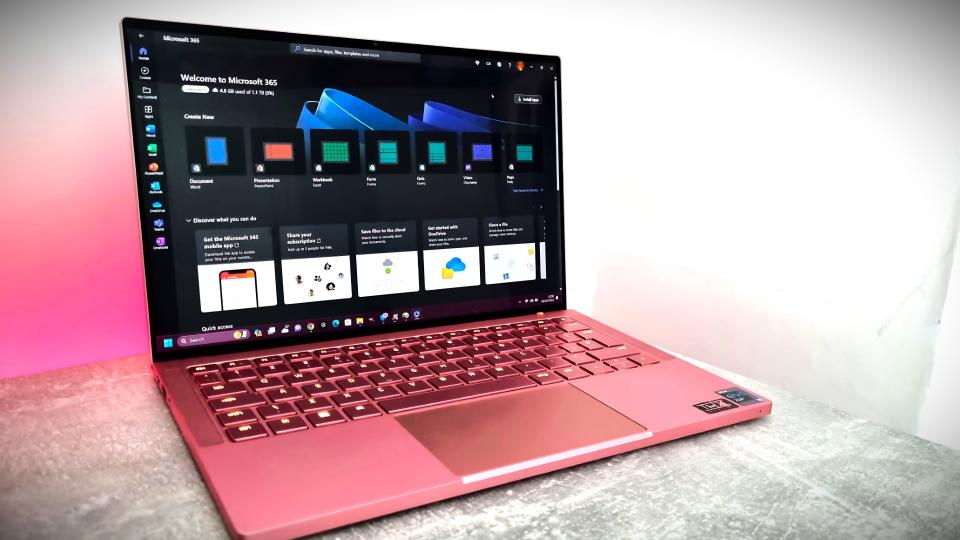
In the end, I did get through to someone who did take it upon themselves to contact me via email to maintain contact, who then escalated the case to figure out if I really was the account holder, so that the authenticator could be removed. I realize this is just one account, but you don't need to go far into Reddit to find mountains of similar experiences.
I was grateful to get my issues fixed finally, but I also couldn't help but consider how easy it was for me to get the authenticator layer removed in the first place. I imagine it would be quite easy for a determined attacker to trick an external call center into removing this security layer, and the lack of cloud backups for the Microsoft Authenticator here seems like an easy vulnerability to fix. Microsoft's passwordless authenticator layer is also easy to exploit for an attacker potentially, since it throws up three numbers to the Authentication device. All it would take is for someone to get confused and click the wrong number to allow an attacker to enter your account if all they needed to know was your email address.
When I first started within the Microsoft ecosystem, getting customer support for practically any product was incredibly easy. I did so multiple times for Surface devices, Xbox, and Office 365. These days, you're ferried around a Kafkaesque maze of bots and outsourced call centers, the latter of which doesn't seem fit for purpose.
Microsoft has vaguely made its senior-level pay incentives directly tied to "security milestones" as part of initiatives launched last year, but the details remain scant. I'm sure it's more profitable to hope you don't get hacked so you can save money that would otherwise be invested in security, but the long-term damage of this attitude is readily apparent. Microsoft itself warned investors of "cyberattacks and security vulnerabilities that could lead to reduced revenue, increased costs, liability claims, or harm to our reputation or competitive position" in their most recent quarterly earnings. Indeed.
Surface and Windows Phone almost made Microsoft seem cool, until again, Microsoft gave up

Last year, Satya Nadella lamented killing Windows Phone, calling it a mistake. Indeed, Microsoft acquired Nokia's phone division for over $7 billion, and then Satya Nadella wrote it off and shut down the entire project not long after becoming CEO. It was also not long after Satya Nadella posted a photo op between himself and then Nokia CEO Stephen Elop while claiming to be fully committed to the platform.
Why did Satya Nadella call running Windows Phone into the ground a mistake? Well, as I mentioned in the intro, they've now handed all the keys to mobile computing to Apple and Google, who will stop at nothing to hinder Microsoft's efforts in search, social media, gaming, and consumer-oriented A.I. products. Defining features of A.I. capabilities for computing paradigms will leave Microsoft behind as Apple, Google, and Samsung roll out their efforts to consumers first and define an industry. At the same time, Microsoft has to watch from the sidelines. It needn't have been this way.
Increasingly, companies are trying to figure out how to "mobilize" A.I. tools. We've seen some less-than-impressive products, like the rabbit r1 pocket device that comes with ChatGPT and little else. But I feel like there's something to be said about a device that doesn't absorb all of your time and can be more of a healthy companion than today's distraction-prone blackhole devices. Either way, someone smarter than me probably could've worked all this out, but Microsoft has lost some of its biggest hardware innovators in recent years.
As far as I can tell, the fantastic commercial for the Surface Studio has been removed entirely from Microsoft's YouTube, which gives you an idea of how Microsoft today feels about its hardware and the communities it curates around it.
Panos Panay, Alex Kipman, and others known for leading innovation in Microsoft hardware are no longer at the company for various reasons. Panos Panay most notably architected the entire Surface line, whereas Kipman was responsible for creating Kinect and HoloLens. Beyond Windows Phone itself, precluding Microsoft's efforts in mobile computing, Microsoft has also wound down its efforts to innovate in desktop computers, laptops, and tablets.
The next Surface event is touted to be something of a muted affair. Microsoft is doing some exciting things with ARM processors in Surface, but the overall design of the Surface line has barely shifted in recent times. Some more innovative and spectacular designs have been wholly shelved, like the Surface Duo, Neo, Studio, and Book, in favor of more traditional form factors like the Surface Pro and Laptop. It's an entirely separate article about the decline of Surface in recent years. Still, if I'd seen Microsoft's lack of investment and faith in growing and improving Surface, I'd have probably jumped ship like Panos did, too.
For customers, it means the future of Surface looks similarly bleak. The Surface Duo was a frustrating product in some ways, but it's hardly shocking that Microsoft wouldn't nail an Android phone in the first couple of iterations. Samsung has struggled to make a genuinely high-quality version of Android for many years and has only recently come into its own here. Microsoft's Surface Laptop Studio was an excellent replacement for the Book, save for a few downsides like lacking I/O, and the desktop Studio was just too expensive for the power it was packing. You'd have thought both were relatively easy fixes, but typical Microsoft threw in the towel.
While I am excited about the Snapdragon X Elite Surface iterations, as a consumer, my faith in Surface's future couldn't be lower. Surface suffers the same customer support cut-corners as Microsoft 365, with retail stores shut down and marketing spend nearly nonexistent. Microsoft's fickle attitude to its products doesn't inspire the kind of consumer confidence competitors like Apple or Dell enjoy and need through its short-sighted designs.
Winning trust in the consumer space is incredibly difficult. In previous years, Microsoft had invested a lot of time and effort in curating the goodwill and prestige around the Surface brand. Still, now it's throwing it all away with inconsistency and a downgraded presence atop a lack of innovation. The death of Surface won't just be the death of Surface; it'll be the death of trust should Microsoft ever attempt anything like this again, as an extension of the trust damage already playing out from the death of Windows Phone.
Ads in the Windows 11 Start Menu is pure insanity
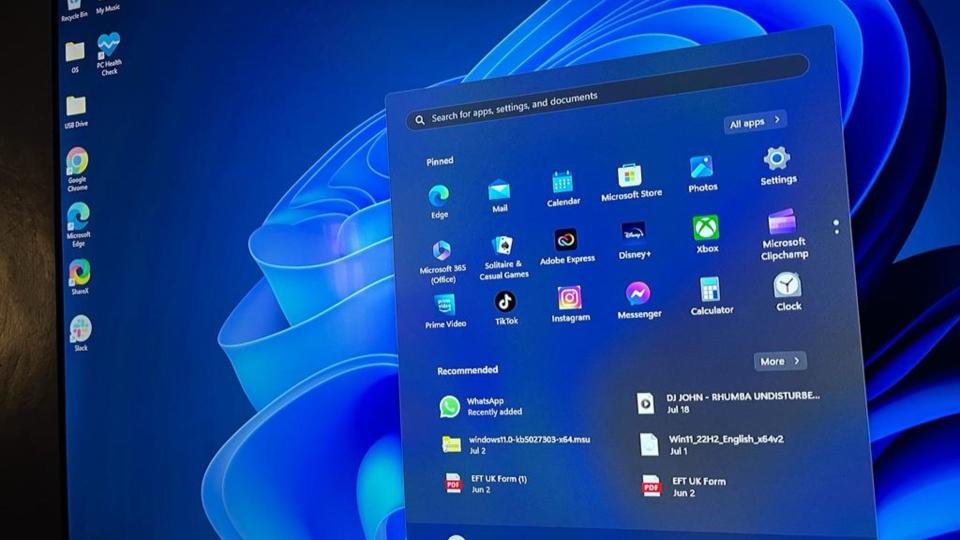
It's perhaps a small irony that Microsoft is fighting with regulators about Google and Apple's control over mobile, while it abuses its position on Windows 11 to bully everyone into using its products on PC.
Microsoft could have had control over its mobile future, without having to beg regulators and Apple and Google to open up their platforms, had it stuck it out with Windows Phone. However, Microsoft ultimately made its bed. Microsoft is applying a double standard and hypocrisy into Windows 11 itself, which is struggling to claim market share from the near decade-old Windows 10 by some metrics.
Users have been complaining about "ads" in Windows for years. Whether it's pre-installed software that you won't have any intention of using, or "recommendations" in the lock screen. Generally, you can uninstall or turn most Windows 11 ads off, but Microsoft has been getting more aggressive in recent years.
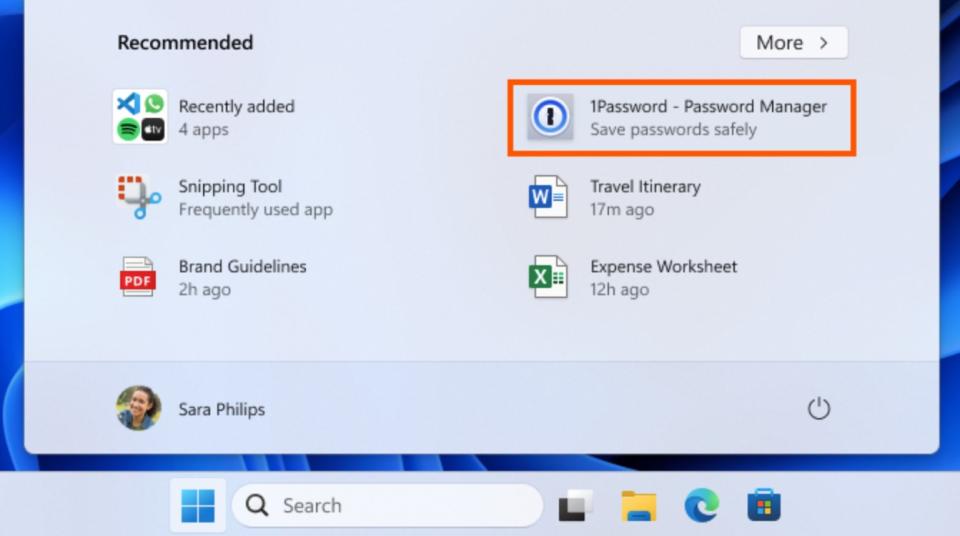
Microsoft will start placing recommended apps in the Start Menu, as depicted above. It'll roll out gradually in the coming weeks, and it seems some of these will be quite easily turned off.
However, Microsoft has also gotten incredibly aggressive with marketing Microsoft Edge within Windows 11 recently, moving beyond simple "hey, Microsoft Edge is actually pretty good" to outright resetting your default browser when you run major updates. Microsoft will drop pop-ups to warn you not to install Chrome and beg you to stay with Microsoft Edge when searching for Chrome within Bing.
I actually use Microsoft Edge, and I like it a lot. The password manager is incredibly easy to use and syncs between Edge on my desktop and Samsung Galaxy well. But punishing users who don't want to use it is egregious and a problem of Microsoft's own making. Google made a browser that was simply better through innovation and hard work. Microsoft didn't invest enough in its browser technology, and excluded themselves from the market by putting customers last — notice a pattern here?
Corporate is coming for Xbox, with short-sighted 'money-now' strategies that will cause irreparable damage
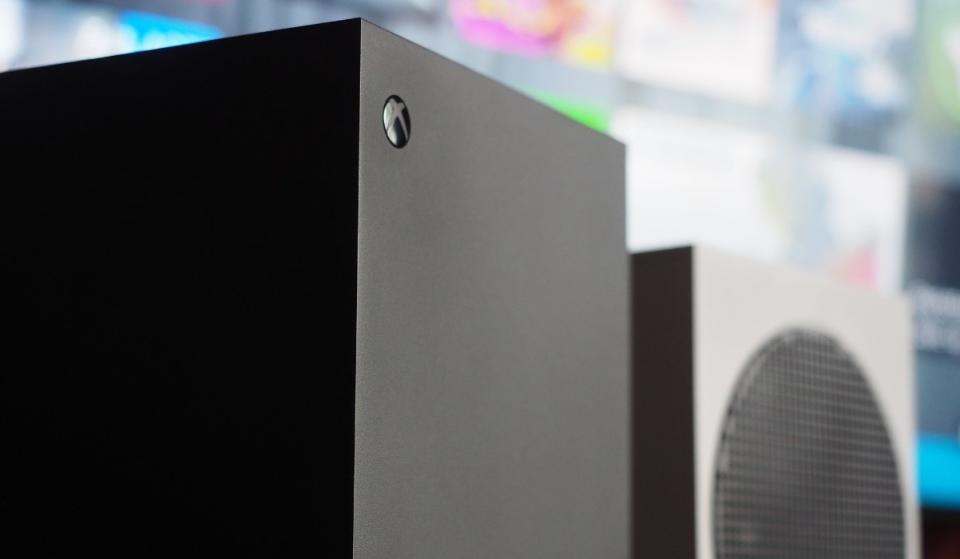
I love my Xbox Series X; it's an incredible piece of kit that does exactly what I want it to, but similarly to Microsoft Edge, it might be too late.
Xbox hardware sales have been down around 30% year over year, two years in a row. Part of that is a poor game line-up and inconsistent delivery from Xbox. Part of it is the general gaming downturn. Another part of it is Microsoft's catastrophic 2013 reveal of the Xbox One, which has cast a cloud of doubt over the brand ever since.
Despite all this, Xbox has record revenue, even before Activision-Blizzard joined the fray. Indeed, Microsoft wants to stay in gaming, hence spending $72 billion on Activision-Blizzard last year, giving it control over Call of Duty, World of Warcraft, and other major PC, console, and mobile franchises. I still had this potentially na?ve outlook that Activision under Xbox would benefit all involved. Still, it resulted immediately in hundreds of layoffs, game cancellations squeezed budgets, and studio closures and divestitures. From the outside, it's hard not to see what's going on at Xbox as totally chaotic, and as with the above, chaos and inconsistency have typified Microsoft's playbook in the years I've been covering the brand.
Most of Xbox's life span over the past ten years has revolved around playing catch up, and the fact they're still in the game is a miracle. Innovations like Xbox Game Pass, advocation from Phil Spencer and his team, and building more affordable consoles like the Xbox Series S have helped Microsoft stay in the running. But now, Microsoft's corporatism is infecting the good will and momentum Xbox had been generating in recent years, threatening to derail the hard work to rebuild.
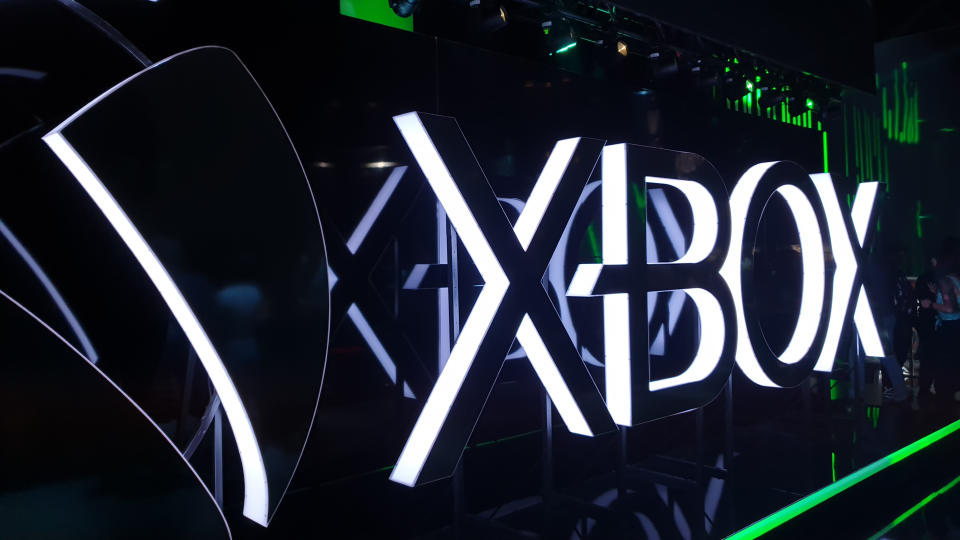
Microsoft CEO Satya Nadella previously said that he "has no love" for the world of console-exclusive games. Fast-forward a few months, and Nadella is now celebrating with investors his strategy to move Xbox's exclusive games to PlayStation, a strategy that has been met with widespread alarm from Xbox users and confusion from pundits.
There's some console war tribalism in certain corners, but there are plenty of legitimate reasons to be concerned about this if you're a current Xbox customer. It stands to reason that moving your exclusive games like Halo, Gears, or Forza to PlayStation eliminates a reason to buy an Xbox console. If you eliminate reasons to buy an Xbox console, you're once again handing the keys to your future to other platforms, a problem Microsoft has right now with Google and Apple. Furthermore, you're removing an endpoint to acquire users via Xbox Game Pass. Cloud is prohibitively expensive right now and is gatekept by Apple and Google, once again blocking in-app purchases or, in some cases, blocking it entirely. You're also decreasing your footprint for game developers, who will increasingly see Xbox versions as wasting time. You set yourself up for a tailspin nosedive of exclusion, to the point where Xbox becomes another game publisher without a say in the overall direction of the industry — but maybe that's the idea.
The plan to move Xbox games to other platforms is codenamed "Latitude" internally, and I know there's debate and unease at Microsoft about whether or not this is a good idea. More upcoming Microsoft-owned games slated for PlayStation are already being developed. At least for now, they're potentially obvious games you'd most likely expect. And yes, while it's true Microsoft is a prolific publisher on PlayStation already, it has typically revolved around specific franchises like Minecraft. From what I've heard, Microsoft is pushing for no "red line" for what games could come to PlayStation, and it all revolves around Satya Nadella and CFO Amy Hood's mandate to increase every department's margins.
Obviously, putting Halo Infinite on PlayStation will increase profit margins. Sea of Thieves enjoyed the top spot on the PlayStation Store this past week. And in a perfect world, it's great that more people get to play these games. But we don't live in a perfect world where platform holders willingly collaborate for customers' betterment while competing on pure value. Like many of Microsoft's other recent strategies, pursuing this strategy is a short-term margin booster with long-term consequences. Yes, the industry is struggling, and Microsoft isn't the only hardware manufacturer that has seen declines. But destroying the foundational reason to buy an Xbox isn't the answer you give if you do care about the long-term.
Microsoft needs to learn some patience
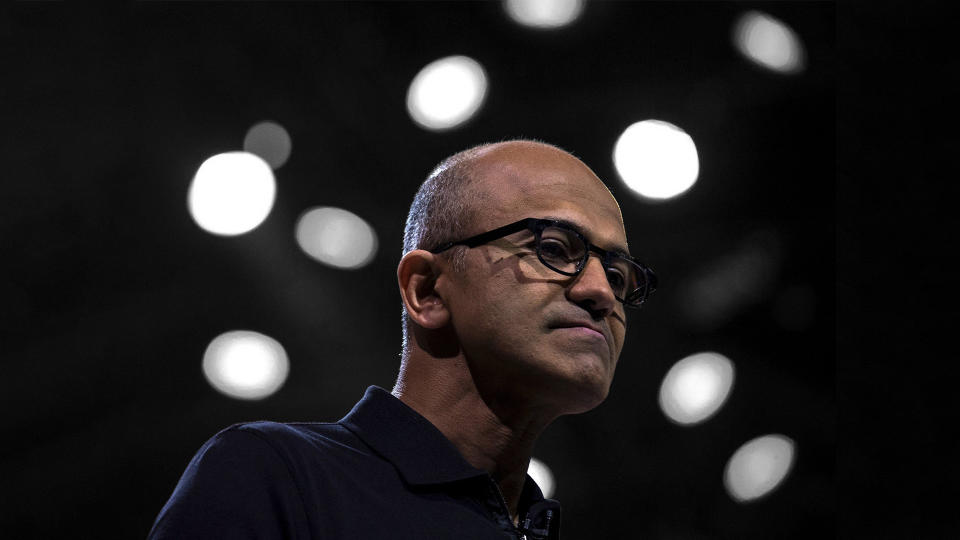
Microsoft's net income last quarter was over $20 billion. Plenty of that is attributable to cloud, and I'm not suggesting Azure has to prop up its other businesses, but there's something to be said about playing the long term game. Microsoft co-founder and former CEO Bill Gates once offered a variation of a quote attributed to dozens of others, which follows something like this: "People often overestimate what will happen in the next two years and underestimate what will happen in ten." Microsoft doesn't seem to be learning from these lessons.
There could be a wave of new mobile A.I. devices that Microsoft could've taken advantage of if it at least had some foothold in mobile phones. There could be some super hit viral game around the corner that would turn around Xbox's console fortunes if Microsoft doesn't kill its hardware platform with short-sighted decisions soon. A Microsoft competitor may emerge who takes customer service and security investments more seriously and works to undermine trust in Microsoft's products through those weaknesses Microsoft has allowed to accumulate. Perhaps Zuckerberg's multi-billion dollar gambit in the metaverse ends up paying off.
Hindsight is 20/20, and I'm admittedly not privy to the full range of factors driving some of Microsoft's decision-making. But after ten years, the results tend to speak for themselves. I always hear that Microsoft is "learning, learning, learning" from its mistakes, but it never seems to do so. They acquire companies at a breakneck speed, underinvest in integrations, and then shut down those divisions and products while wondering what went wrong. We've seen it repeatedly: reams of layoffs, underbaked integrations, low investment, and taking customers for granted.
I used to wonder why many Microsoft reporters seemed jaded, but after almost a decade, I feel like I'm starting to understand. There's still plenty to love here, and I'm certainly not denigrating the efforts of individuals in those teams — I want them to be supported better and for customers to be treated with more care. I like Windows 11 for the most part, and I like the possibility of using Surface with ARM. Xbox seems to have an impressive slate of upcoming games. But because of the patterns Microsoft keeps throwing at us, it all comes with a cloud of doubt. Doubt is easy — building trust is hard, and Microsoft hasn't learned this yet.
